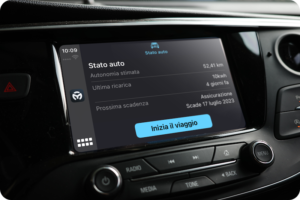The Psychology of Summer Traffic: How to Stay Calm and Drive Better

Summer vacation season brings excitement and adventure, but it also brings something less welcome: heavy traffic, road rage, and heightened stress levels behind the wheel. Whether you’re heading to the beach, visiting family, or embarking on a cross-country road trip, summer traffic can transform even the most patient driver into a bundle of nerves.
Understanding the psychology behind summer driving stress is the first step toward maintaining your composure and ensuring safer journeys. By implementing proven stress management techniques and leveraging smart planning tools, you can transform your summer driving experience from stressful to serene.
Why Summer Traffic Affects Us Psychologically
Summer traffic isn’t just about more cars on the road—it’s a perfect storm of psychological stressors that can overwhelm even experienced drivers. The combination of heat, vacation expectations, unfamiliar routes, and crowded highways creates a unique mental challenge.
The Stress Response Behind the Wheel
When we encounter heavy traffic, our bodies activate the same fight-or-flight response our ancestors used to escape predators. Your heart rate increases, cortisol levels spike, and your decision-making abilities can become impaired. This physiological response, while useful in genuine emergencies, becomes counterproductive in traffic situations where patience and clear thinking are essential.
Vacation Pressure and Time Anxiety
Summer driving often comes with additional psychological pressure. You’re not just commuting to work—you’re trying to maximize precious vacation time, meet family expectations, or reach a destination before check-in deadlines. This time pressure amplifies stress and can lead to aggressive driving behaviors that compromise safety.
Proven Psychological Techniques for Traffic Stress Management
The 4-7-8 Breathing Technique
One of the most effective immediate stress relief methods is controlled breathing. When you feel tension building in traffic, try the 4-7-8 technique:
- Inhale through your nose for 4 counts
- Hold your breath for 7 counts
- Exhale through your mouth for 8 counts
- Repeat 3-4 times
This technique activates your body’s relaxation response and can quickly reduce stress hormones while improving focus.
Cognitive Reframing
Transform your relationship with traffic by changing your internal dialogue. Instead of viewing delays as obstacles, reframe them as opportunities:
- “This traffic gives me time to listen to my favorite podcast”
- “I can use this time to practice mindfulness”
- “At least I’m safe in my car with air conditioning”
The 5-4-3-2-1 Grounding Technique
When anxiety peaks, ground yourself in the present moment by identifying:
- 5 things you can see
- 4 things you can touch
- 3 things you can hear
- 2 things you can smell
- 1 thing you can taste
This technique redirects your focus away from stressful thoughts and back to your immediate environment.
Smart Planning: Using Data to Avoid Peak Stress Times
The most effective way to manage summer traffic stress is to avoid it altogether through strategic planning. Modern technology offers unprecedented insights into traffic patterns, allowing you to make data-driven decisions about when and how to travel.
Understanding Traffic Pattern Analytics
Summer traffic follows predictable patterns based on vacation schedules, weather conditions, and local events. By analyzing historical data, you can identify:
- Peak exodus times (typically Friday afternoons and Sunday evenings)
- Optimal departure windows with minimal congestion
- Alternative routes that remain clear during peak times
- Weather-related traffic variations
The Power of Route Optimization
Advanced mileage tracking apps like Magica don’t just record your trips—they provide valuable insights into your driving patterns and can help you optimize future journeys. By analyzing your historical data, you can identify the routes and times that consistently result in lower stress and better fuel efficiency.
Ready to take control of your summer driving experience? Download Magica Mileage Tracker today and start leveraging data-driven insights to plan your optimal travel times and routes.
Pre-Trip Psychological Preparation
Setting Realistic Expectations
Before you even start your engine, set yourself up for success by establishing realistic expectations. Research your route, check traffic forecasts, and build buffer time into your schedule. This mental preparation reduces the likelihood of stress-inducing surprises.
Creating a Calm Driving Environment
Your car’s environment significantly impacts your psychological state. Prepare your vehicle to be a stress-free zone:
- Adjust your seat and mirrors for optimal comfort
- Set the temperature to your preferred level
- Prepare a playlist of calming music or engaging podcasts
- Keep water and healthy snacks within reach
- Ensure your phone is charged and mounted safely
During-Drive Stress Management Strategies
The Psychological Distance Technique
When traffic stress begins to build, create psychological distance from the situation. Imagine yourself as an observer watching the traffic scene from above, or visualize telling a friend about this experience later with humor rather than frustration.
Progressive Muscle Relaxation
While stopped in traffic, practice progressive muscle relaxation:
- Tense your shoulders for 5 seconds, then release
- Clench your fists, hold for 5 seconds, then relax
- Tighten your jaw muscles, hold, then release
- Focus on the contrast between tension and relaxation
Mindful Driving Practices
Transform your driving time into a mindfulness practice. Focus on the sensation of your hands on the steering wheel, the sound of your engine, or the feeling of air from the vents. This present-moment awareness reduces anxiety and improves driving performance.
Leveraging Technology for Stress-Free Summer Driving
Modern technology offers powerful tools for reducing driving stress through better planning and real-time information. Comprehensive mileage tracking apps provide insights that go beyond simple navigation, offering data-driven recommendations for optimal travel times and routes.
Real-Time Traffic Intelligence
The most effective stress management strategy is prevention. By using apps that provide real-time traffic data and historical pattern analysis, you can:
- Identify the best departure times for your specific route
- Receive alerts about traffic buildups before they affect you
- Automatically reroute to avoid congestion
- Track your fuel efficiency across different routes and times
Data-Driven Decision Making
Smart drivers use data to make informed decisions about their travel plans. By tracking your trips and analyzing patterns, you can identify which routes consistently provide the smoothest, most fuel-efficient journeys during summer months.
Building Long-Term Resilience
Developing a Growth Mindset
View each challenging driving experience as an opportunity to build resilience and improve your stress management skills. Keep a driving journal to track what techniques work best for you in different situations.
Regular Practice
Don’t wait for stressful situations to practice these techniques. Incorporate breathing exercises, mindfulness, and positive self-talk into your daily driving routine so they become automatic responses during high-stress moments.
The Science of Calm Driving
Research shows that calm, relaxed drivers are not only happier but also safer and more fuel-efficient. When you’re stressed, you tend to brake more frequently, accelerate more aggressively, and make sudden lane changes—all of which increase fuel consumption and accident risk.
By maintaining psychological calm, you naturally adopt smoother driving patterns that benefit both your wallet and your safety record. This is where comprehensive trip tracking becomes invaluable, allowing you to see the correlation between your stress levels and driving efficiency.
Conclusion: Your Summer Driving Success Plan
Mastering the psychology of summer traffic isn’t about eliminating stress entirely—it’s about developing the tools and mindset to handle challenging situations with grace and confidence. By combining proven psychological techniques with smart planning and data-driven insights, you can transform your summer driving experience.
Remember that every expert driver was once a beginner, and every calm driver has faced their share of stressful traffic situations. The difference lies in their preparation, mindset, and willingness to use available tools to their advantage.
Take the first step toward stress-free summer driving. Download Magica Mileage Tracker and start using data-driven insights to plan your optimal travel times, track your driving efficiency, and build a comprehensive record of your summer adventures. Your future self will thank you for making every journey a little bit calmer and a lot more enjoyable.


